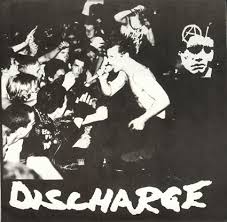discharge
英 [dɪsˈtʃɑːdʒ]
美 [dɪsˈtʃɑːrdʒ]
- vt. 解雇;卸下;放出;免除
- vi. 排放;卸货;流出
- n. 排放;卸货;解雇
使用频率:

记忆方法
将“discharge”分解为“dis-”和“charge”,记住“dis-”前缀表示“去除”或“分开”,而“charge”意为“电荷”或“责任”。想象电荷从某物上释放出来,也就是“去除电荷”或“卸下责任”,这样就可以记住“discharge”的意思是释放或卸下。
以上内容由AI生成, 仅供参考和借鉴
中文词源
discharge 释放,排出
dis-, 不,非,使相反。charge, 装载。即卸货,释放,排出。
英语词源
- discharge (v.)
- early 14c., "to exempt, exonerate, release," from Old French deschargier (12c., Modern French décharger) "to unload, discharge," from Late Latin discarricare, from dis- "do the opposite of" (see dis-) + carricare "load" (see charge (v.)).
Meaning "to unload, to free from" is late 14c. Of weapons, from 1550s. The electrical sense is first attested 1748. Meaning "to fulfill, to perform one's duties" is from c. 1400. Related: Discharged; discharging. - discharge (n.)
- late 14c., "relief from misfortune," see discharge (v.). Meaning "release from work or duty" is from early 15c.
权威例句
- 1. He was given a conditional discharge and ordered to pay compensation.
- 他被有条件地释放了,被责令支付赔偿款。
- 2. Discharge of raw sewage into the sea is unsanitary and unsafe.
- 把未经处理的污水排放到海里既不卫生也不安全。
- 3. They develop a fever and a watery discharge from their eyes.
- 他们开始发烧,眼睛里分泌出一种水状物。
- 4. In industry, a worker who is grossly insubordinate is threatened with discharge.
- 在企业内部,拒不服从指令的工人会面临遭解雇的威胁。
- 5. There was a watery discharge from her ear.
- 她耳朵里流出水样分泌物。
